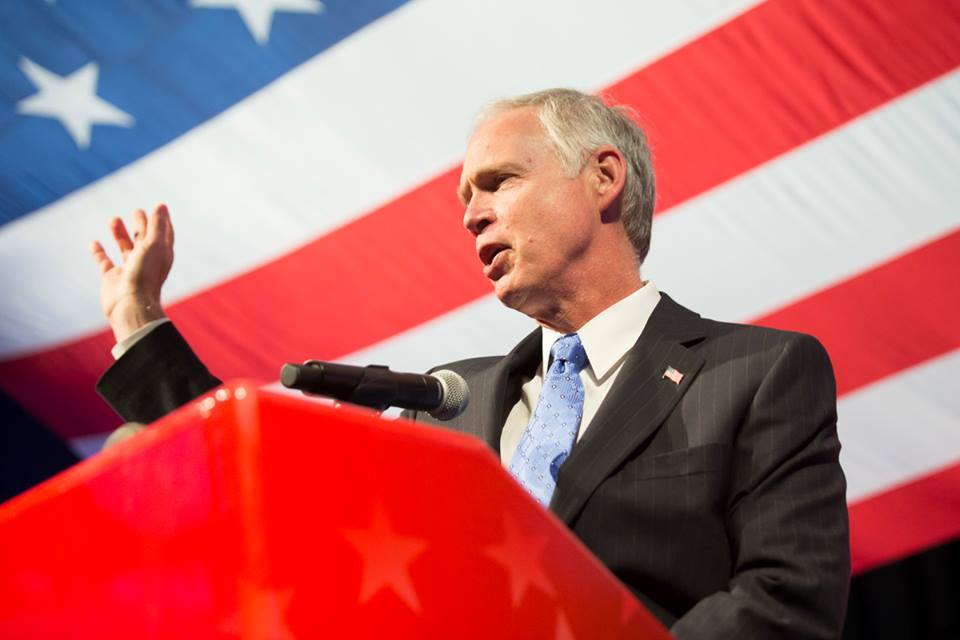
MADISON, Wis. – Just what every angry air traveler waiting in a long line to be, scanned, frisked and fondled by a TSA agent wants: A warning that the lines could get longer.
Senate committee members at a hearing Tuesday grilled federal Transportation Security Administration officials about long lines, frazzled travelers, and, above all, how to keep the U.S. aviation system safe and humming.
TSA chief Peter Neffenger told the Homeland Security and Governmental Affairs Committee that there has been much progress made in recent weeks in shortening lines, mainly by adding staff at the nation’s busiest airports.
But problems remain.
U.S. Sen. Ron Johnson, R-Oshkosh, chairman of the committee, put the TSA’s mission simply: “Protect the air transportation system to ensure freedom of movement and commerce.”
It’s a big multibillion-dollar job to be sure. The TSA’s annual budget clocks in at about $7.55 billion per year.
In fiscal 2015, the TSA screened some 695 million passengers and 2 billion carry-on and checked bags. Some security agents are really good at that. Others, not so much. And there remain a lot of empty positions.
As Johnson noted, since February there has been a wave of media reports about the growing wait times at TSA security checkpoints. Just last month, 450 travelers at Chicago’s O’Hare International Airport missed flights due to a three-hour wait in the security line.
A day later Homeland Security Secretary Jeh Johnson advised air travelers to “contemplate increased wait times as you travel.”
“We encourage people to have the appropriate expectations when they arrive at airports,” Johnson said at a press conference at Reagan National Airport last month.
TSA plans to ramp up hiring of 768 new security officers, among other initiatives to move security lines.
But the agency miscalculated the number of passengers that would sign up for its PreCheck expedited screening program, forcing it to trim staff by 10 percent. That created record lines.
“In my state, travelers have expressed frustration with enrollment and adjudication delays,” Johnson said in his opening statements Tuesday. “Wisconsin is one of two states in the country where enrollment centers are fully booked, forcing Wisconsinites to wait 45 days for an appointment.”
Johnson said the delay is “entirely avoidable.” He said 200 additional PreCheck enrollment employees “stand ready to work, but are awaiting final TSA approval.”
“If the TSA would act on these applications, wait times for PreCheck would likely immediately go down,” the senator said.
Neffenger testified Tuesday that wait times declined significantly over the busy Memorial Day weekend. He told committee members that 99 percent passengers at U.S. airports waited less than 30 minutes to move through security.
“When you get stories of long wait times it has primarily been those airports,” Neffenger said, noting the nation’s largest commercial flight centers. “If you can prevent problems from happening there, you don’t have problems that cascade throughout the system.”
The call for privatizing security operations is getting louder, Johnson said.
He noted that 22 airports, including San Francisco International and Orlando’s Sanford International, are participating in the Screening Partnership Program, which allows private contractors to screen passengers and baggage.
The Department of Homeland Security’s Inspector General, John Roth, testified that the TSA is making strides in red-flagging prohibited items. Screeners repeatedly missed such items in secret tests conducted by the IG’s office, according to a report issued last year.
“We are generally satisfied with the progress they are making, which is by no means complete,” Roth said, as reported by U.S News & World Report. The IG expressed concern that not enough is being done to protect against the “insider threat” posed by an airport worker or others who have access to airport restricted areas.
While the wait lines have been irritating, complicating and arguably unnecessary, the ultimate priority remains preventing tragic events.
Johnson noted the March 22 coordinated bombings at the Brussels airport and the May 19 crash involving an EgyptAir jet “as two clear examples of terrorist organizations continuing to target commercial aircraft.”
“Given the threats we face to aviation security,” the senator said, “we must also ensure that TSA is adapting to the evolving threat environment.”
